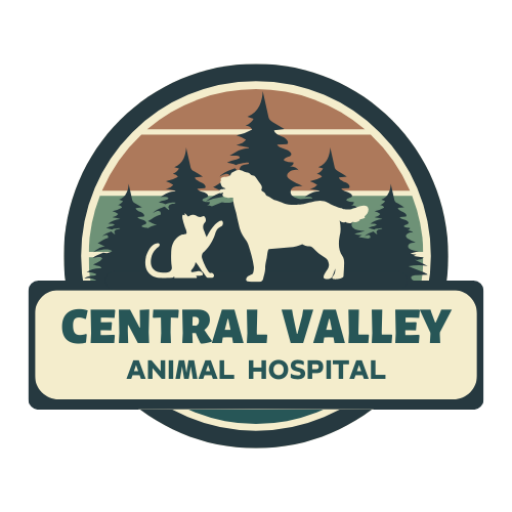puppy care
The first wellness exam is crucial in establishing the health of your puppy, so it is important to bring your puppy in for an exam as soon as possible.
puppy Care
Premature puppies may suffer more from medical issues as their immune system is not fully mature and may be more susceptible to certain health issues. Puppies that have not had adequate medical care prior to adoption may have pre-existing conditions that need to be addressed. At Central Valley Animal Hospital, our puppy exam will ensure that your new companion will be on their way to growing up healthy and strong.
YOUR PUPPY’S FIRST VISIT
On your first visit with us, please bring the health information provided by the seller or shelter, which should include a previous history of vaccines and deworming and a fresh stool sample. Please also bring your puppy on a leash or dog carrier.
We will perform a comprehensive examination during the visit and check for internal and external parasites. During their first year of life, puppies need a series of vaccinations to protect them from many dangerous (but preventable) diseases, and we will develop a vaccination plan specifically for your puppy.

We will discuss any questions you may have concerning care for your pet, including diet and nutrition, behavioral issues, integrating the new puppy into your home, and house training.
Your puppy’s first exam will include:
- A comprehensive physical exam
- Intestinal parasite screening
- Intestinal parasite deworming (if necessary)
- Development of a vaccination program based on your puppy’s lifestyle
- Heartworm prevention
- Recommendations for controlling and preventing external parasites such as fleas and ticks
- Behavior and housetraining recommendations
- Nutritional counseling

VACCINES AND YOUR PUPPY
SIGNS THAT YOUR PUPPY NEEDS IMMEDIATE MEDICAL ATTENTION
Please be alert to the following symptoms, which may be signs that your puppy needs immediate care:
- Respiratory problems (persistent coughing, shortness of breath, labored breathing, shallow breathing, or excessively rapid or slow breathing)
- Signs of pain (panting, labored breathing, increased body temperature, lethargy, hiding, restlessness, loss of appetite, reacting aggressively when touched or approached, crying)
- Persistent vomiting or diarrhea
- A wound or laceration that’s open and bleeding
- Animal bites
- Allergic reactions or swelling around the face, hives, or severe itching
- An eye injury, no matter how mild
- Seizure, fainting, or collapse, difficulty standing or getting up, blank stare, disorientation
- Exposure to extreme cold or heat, even if the dog seems to have recovered
- Trauma such as getting hit by a vehicle or falling, even if the dog does not appear to have been physically harmed
- Suspected poisoning, including ingestion of antifreeze, rodent, or snail bait
Please contact us immediately if your puppy is experiencing any of these symptoms.


